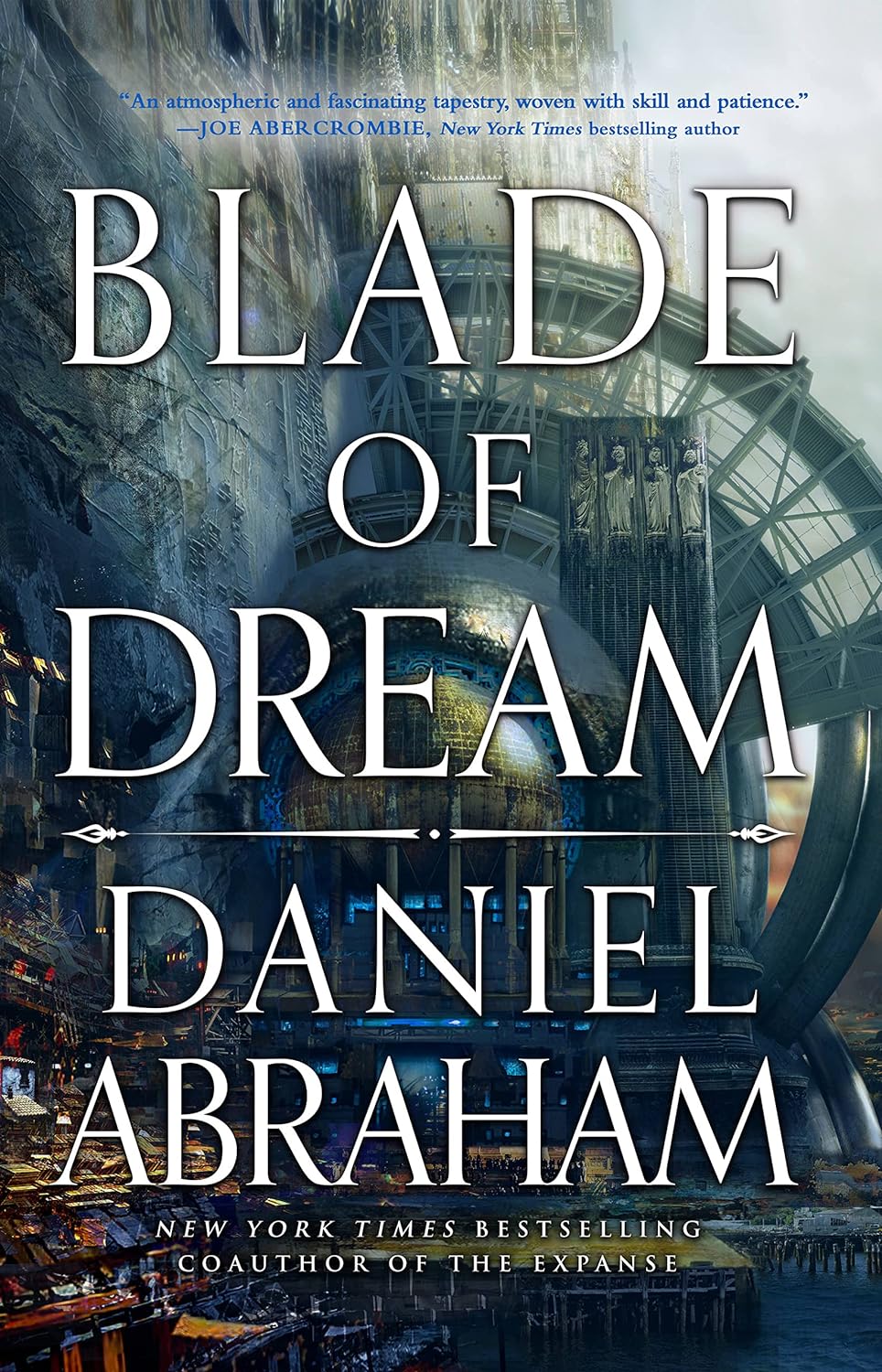Blade of Dream (The Kithamar Trilogy, 2)
Daniel Abraham continues to sculpt the intricate world of Kithamar in the second installment of The Kithamar Trilogy, “Blade of Dream.” This novel centers on Garreth Left, a character entangled in a web of destiny and desire, set against the backdrop of a richly detailed fantasy city that thrives on commerce and conspiracy.
At its core, “Blade of Dream” delves deeply into the theme of personal agency versus societal expectations. Garreth Left, the reluctant heir to a prosperous merchant family, finds the preordained path laid before him suffocating. His yearning for autonomy is palpable and serves as the primary catalyst for the novel’s events. Abraham skillfully portrays Garreth’s internal conflict, making him a relatable protagonist for anyone who has struggled against the burden of familial obligations.
The narrative takes a dramatic turn following Garreth’s encounter with an elusive stranger, marking a compelling fusion of romantic impulse and adventurous intrigue. This interaction not only introduces a quest-driven element to the story but also enhances the mythological layers of Kithamar. Abraham’s city is a character in its own right, with a labyrinthine layout that mirrors the complex lives of its inhabitants. The author’s vivid descriptions of shadowy alleys and secretive meetings enrich the atmospheric tension, enveloping the reader in a world where every shadow could conceal a story or a threat.
One of the standout aspects of Abraham’s writing is his nuanced approach to world-building. He deftly integrates elements of economics, politics, and mythology, making “Blade of Dream” a sophisticated narrative that appeals to enthusiasts of deep, thought-provoking fantasy. Moreover, the author avoids the trap of excessive exposition by revealing the city’s secrets and the nature of its deities gradually, through the experiences of Garreth and the supporting cast.
The supporting characters are themselves reflections of Kithamar’s diverse society, each adding depth and perspective to the unfolding drama. Their interactions with Garreth provide insights into the myriad ways one can navigate, confront, or capitulate to the city’s demands and dangers.
“Blade of Dream,” however, is not without its minor flaws. The pace occasionally suffers from the weight of the narrative’s complexity, particularly in the middle sections where the interplay of various factions can overwhelm. Additionally, while the romantic subplot serves as a crucial motivator for Garreth, it sometimes feels underdeveloped, leaving the reader craving more depth in the emotional exchanges.
In conclusion, Daniel Abraham’s “Blade of Dream” is a compelling continuation of The Kithamar Trilogy that successfully builds upon the established foundation. It’s a tale of choices and consequences, woven into the fabric of a city that both constrains and defines its people. For those drawn to intricate fantasies that combine economic intrigue with personal drama and mythological elements, “Blade of Dream” offers a satisfying, engaging read. Abraham proves, once again, that in Kithamar, every story matters — and some may even alter the course of history.









Reviews
There are no reviews yet.